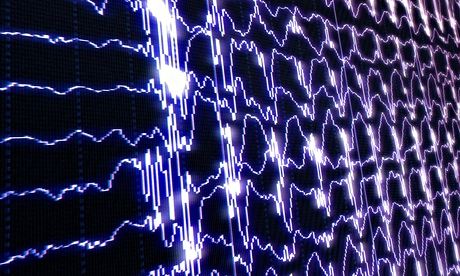
Four times a week, in the middle of the night, while I was asleep, my ceiling would fall in. Sometimes I’d try to prop it up while screaming for help; sometimes I’d just leap out of bed and run.
Other strange things were happening, usually around 2am. Spiders and other bugs would get into my bed and I would scream my head off. It must have sounded pretty alarming – one new flatmate who kept waking in the night to hear unexplained moans and shouts stuck a rosary above her bed.
What I experienced were not nightmares – dreams that ended badly – but concentrated moments of pure terror. If that sounds like something from a B-movie, so does the medical name for it: parasomnia. This week our understanding of the condition has increased slightly with a study finding sleepwalking and night terrors in children are genetically inherited, with those whose parents suffered from them much likelier to experience them too.
My sleep problems began in childhood. Many people grow out of them in adolescence, so my family didn’t take it any further. “You were calling out in the night again,” my mum would say as I got ready for school, grumpy after another night’s unrefreshing sleep. I’d cheerfully tell my friends how I had gone downstairs and turned the TV on, or turned the bath taps on. I’d keep quiet about how I’d walked to the landing, thought I was by the toilet, and peed through the banisters.
I reached 13, the age when night terrors typically stop, but although I left behind other childish things – practising my signature and refusing vegetables – I was stuck with them. People who slept in the same room would delightedly repeat the nonsense I had come out with the previous night; on a campsite in southern Italy, I was found wandering around babbling about the mafia.
It took me until my mid-20s to seek help from the NHS; before that, I just assumed it was a personal quirk I had to live with. A consultant discussed my symptoms, and how stress made them worse; I acknowledged my work as a journalist was stressful, secretly worrying that he would tell me to find a new career as a basketweaver. Instead, he booked me in for a sleep study.
“If something happens in the night, you can press this button and someone will come in,” said a nurse as she attached the last of a series of wires to my face and body at St Thomas’s Hospital in London. “But, to be honest, if something does happen, we’ll know about it before you do.” Someone did come in that night, and re-attached the wire that was on the bottom of my mouth. It was like the point in a horror movie where they catch the demon in a photograph: whatever it was that was happening to me was now caught forever on record.
A few weeks later, I saw my night’s sleep as a graph. “Normal sleep would progress from stage one, stage two, stage three, REM,” the consultant said, moving his pen down the axis. By contrast, my graph looked like it was constantly short-circuiting and having to start again. “This is where you are in the automaton phase,” he said, circling one bit, before adding darkly, “as it would be called in court.” A man in Wales was acquitted of murder after using “automatism” in his defence.
I collected the heavy drugs I would be on for the next few years with all the good grace of someone in their 20s who has just been handed responsibility for a serious medical condition.
Trimiperamene is an antidepressant used to sedate people who suffer from major psychotic disorders. Clonazepam is a muscle relaxant used for epilepsy and panic attacks. I would be taking both, and worried what effect they would have on my personality. Ridiculously, I saw having to take antidepressants to have better dreams as a sign of weakness; it was gloomy to think that I couldn’t control my own unconscious. But the sleep was incredible. I could nod off on demand and would wake up when the alarm clock went off, hazy and dry-mouthed, but calm and refreshed.
Every six months, after sitting in a waiting room with half a dozen exhausted looking patients, my medication would be reviewed. After a good period, my consultant decided to cut them right back.
This wasn’t exactly a success. One morning, staying in my childhood bedroom, I woke to unfamiliar sounds. A tap was running somewhere. I rushed to the bathroom and realised I had run a bath in my sleep. Water was pouring through the ceiling into the lounge downstairs. The flooding left my mother with repairs that took six months to fix.
Thankfully the next time my medication was cut down, it worked. I had been warned the drugs were addictive, and it wasn’t easy to give up the guarantee of a brilliant night’s sleep. But I was 95% cured – for the first time since I was a small child the ceiling in my bedroom was solid, and nothing was crawling about in the dark.
The 5% is a problem only when I change time zones, or am under particular stress – when my daughter was born I would wake up terrified that she was suffocating in the bedclothes. “Classy touch, bringing a baby into this,” I told my unconscious. But I knew it would pass.
Sleep disorders are hardly a priority for the NHS, so I feel lucky to have had the treatment I did. I’m sure thousands are unaware medical help is even available. I still don’t know what triggered the parasomnia – genes or a forgotten trauma – but it taught me that none of us are truly in control of our brains. The weirdness always breaks free eventually.

